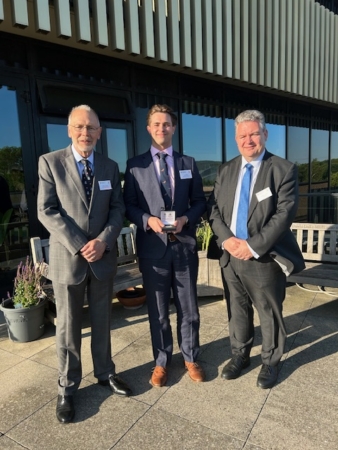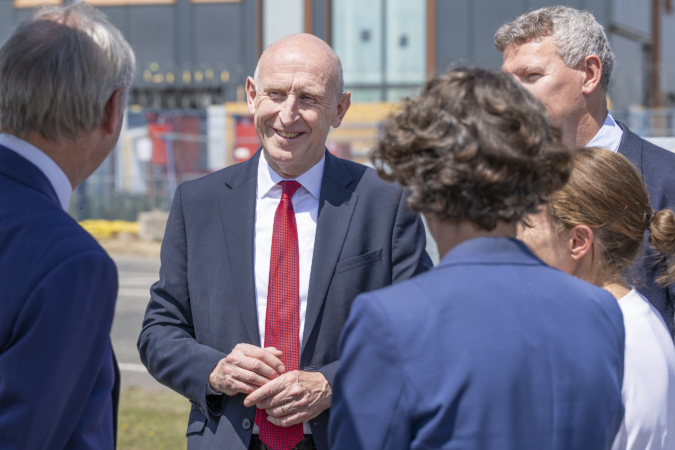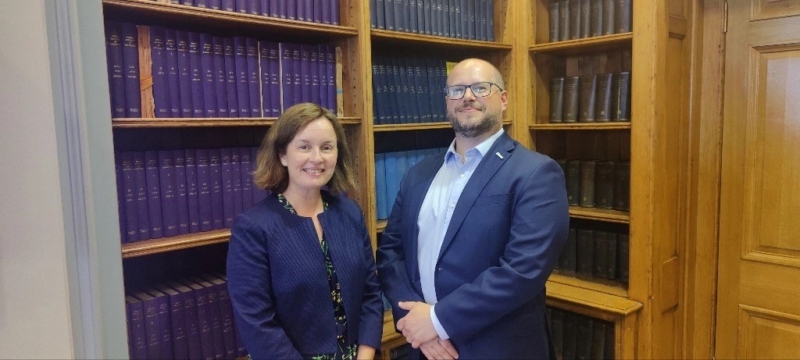Meet physicist Connor, a PhD student at the University of Warwick, who was first introduced to computational physics at AWE
Connor gained his MPhys at the University of Loughborough and is now researching the modelling of heterogenous systems at Warwick, sponsored by AWE.
He tells us what he is working on and how this will support national defence and security:
“I am interested in modelling titanium and its alloys at extreme conditions, using quantum chemistry (QC) and machine learning (ML). QC is used to typically simulate a small collection of atoms with great accuracy, and ML provides a framework to map atomic positions to the observables found from QC in a less computationally demanding way.
This allows us to simulate much larger systems, providing improved statistics which we use to make more meaningful predictions. This ultimately leads to a workflow for simulating materials accurately, which is essential for understanding the operating conditions of devices that cannot undergo more conventional experimentation.”
Why STEM?
“I think it was a mixture of good teachers, my own curiosity and little bit of sci-fi (Treasure Planet, Star Wars, ROTS and Iron Man to name a few) that drew me into STEM. I have always been interested in figuring out how things work from a fundamental point of view, and when I got to sixth form, seeing derivations applied to real-world phenomena captivated me, and so physics was the best option I felt. Outside of my field, I also have a curiosity for psychology. The human brain, and our behaviour, are frankly a bit weird!
How important is it to encourage more young people into STEM?
“Very! When we talk about STEM and its trajectory, we tend to discuss the big names and how they’ve pushed boundaries. What is often neglected are the countless juniors who do a lot of work cutting through the weeds to make it all possible. If we want STEM as a whole to progress, the enrolment of young people with fresh perspectives is essential.
Tell us about what you see as the biggest global challenge in science?
I think one of the biggest challenges facing the scientific community right now is in appropriately implementing machine learning and artificial intelligence solutions. ML and AI are great for surrogate models and potentially learning new things about one’s data. However, I worry that because it is so popular right now, some may implement AI/ML solutions for problems that don’t really need them.
What do you find interesting about AWE?
AWE has a unique and incredibly challenging remit; to ensure the safety and effectiveness of the UK’s nuclear deterrent without conducting live testing. This is done using modelling based on data gathered from extraordinary scientific research. AWE is at the cutting-edge of worldwide research in many disciplines and, of particular interest to me, in materials science and computational physics.
Find out more about opportunities at AWE here: /careers/



